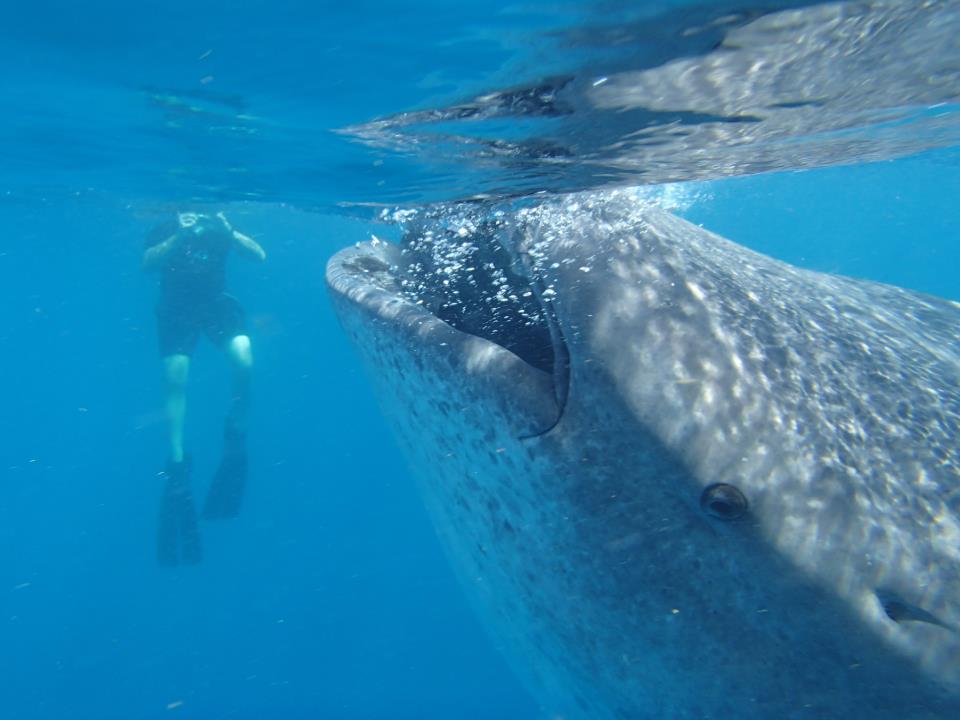Craig is the Chief Editor for Deep Sea News
(Homepage | Twitter | Author RSS)
Dr. Craig R. McClain received his Ph.D. at the University of Massachusetts, Boston and conducted postdoctoral work at the University of New Mexico and Monterey Bay Aquarium Research Institute. He has previously served as the Deputy Director for the Triangle Center for Evolutionary Medicine and the Assistant Director for Science at the National Evolutionary Synthesis Center both at Duke University. He also served Executive Director for the Louisiana Universities Marine Consortium from 2016-2022. During his tenure at LUMCON, he has secured $10 million dollars in grants, a $110 million regional class research vessel, and over $30 million dollars in fund for a new joint maritime campus. LUMCON’s staff, scientific usage, and student population also saw significant growth under his leadership. In addition, Dr. McClain is co-founder and first president of the Deep-Sea Biology Society.
Dr. McClain research focuses on areas of biodiversity, body size , and energetics in coastal, deep, and paleo oceans with over 70 published papers. He has participated in and led dozens of oceanographic expeditions taken him to the Antarctic and the most remote regions of the Pacific and Atlantic. His current research focuses on how energy and metabolism drive the biology of marine organisms from individuals to ecosystems, specifically, seeking to uncover how organisms will respond to climate change. Craig’s research has been featured on National Public Radio, Discovery Channel, CNN, Fox News, National Geographic and ABC News.
In addition to his scientific research, Craig also advocates and publishes on the need for scientists to connect with the public. He is the founder and chief editor of the acclaimed Deep-Sea News. He is also the founder of the science communication unconference OCEANDOTCOMM. His public writing has been featured in Cosmos, Science Illustrated, American Scientist, Wired, Mental Floss, and the Open Lab: The Best Science Writing on the Web. Craig currently hosts the podcast No Such Thing as Boring exploring the most purported most boring topic in science and making them exciting. He is currently collaborating with a Days Edge Studios to realize his vision of a video series, Craig With Big Things, And Small Things Too, that explores his obsession with the diversity of body sizes in nature.


I just want to commend you for your endless patience with the Fukushima hysteria. Yes, it is a grave and terrible situation. But the people who’ve had a high school science class and read some internet articles and now think they are experts and won’t listen to sound and well-researched fact would have me pulling out my hair. Please keep up the good work and try not to let them get to you.
I have to tell you that I respectfully disagree. Have been diving the Caribbean for decades, and have never seen the sort of ecological and diversity shift i have been observing–now after my 6th dive to various parts of the pacific, I cant help but notice changes. I have never in my life seen a seafloor like what I experienced out of Frisco this past summer–yes lots of detritus, crustaceans with virtually no exoskeleton, “cleaned” coral formations, and where are the starfish in Baja? Surely, you get reports from Alaska and what they are seeing in the biosphere there? How can you discount these reports? How would you even know for a surety, since the EPA took down all the PO sites in 2011? I’m not talking about doing micro assays on tissue- to what do you attests sardine, kelp, starfish, dolphin, whale, mussel, barnacle die offs with such rapidity? I think bio-accumulation at this point. Where are the seabirds? Have you looked at the pier pilings along any of the pacific ports? When has this EVER been seen before–they are practically stripped bare??? I would like to debunk that radiation is NOT causing ANY of this–I miss eating seafood. Can you please provide NON-GOVERNMENTAL supported evidence to support this? I’m weary of reading the misinformation they put out about radiation, since after all, they have nothing but a vested interest to keep it going. Thank you for a hoped for reply to this missive